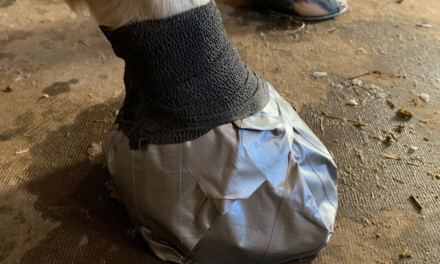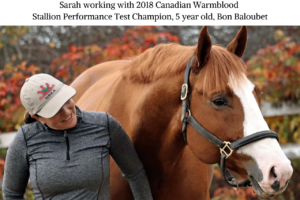We may earn money or products from the companies mentioned in this post. For more information please check out our disclosure page
12 Things To Know About A Horses’ Digestive System and 4 Areas to Address in Order to Provide Preventative Care Against Ulcers Your Horse’s Digestive System



There is a lot of information available online about EGUS (Equine Gastric Ulcer Syndrome) and I recommend you research and read as much as you can in order to understand ulcers more fully. However, this is a brief overview of the most important basics you need to know.
1. Horses have small stomachs and are programmed to graze constantly.
2. They are known as ‘trickle feeders’ as they are designed to consistently eat and salivate.
3. A horses’ stomach releases acid continuously regardless of whether they are eating or not.
4. A horses’ stomach will release 9 gallons of acid each day – that’s equivalent to just under two 5 gallon buckets.
5. A horses’ stomach needs saliva and roughage to act as a buffer from the acid.
6. A horse in its natural environment will graze for two-thirds of its day.
7. Many performance horses have a specific dietary plan that does not always allow for the right balance of roughage and saliva production in order to create a strong buffer against the acid.
8. Performance horses tend to be fed a high grain(for energy) and low roughage (fiber) diets.
9. Large quantities of grain fed to performance horses passes through the stomach faster than roughage based feeds and increases the chance of ulcer development.
10. Stress, training, performance, and travel will all increase the chances of horses developing ulcers.
11. 90 percent of OTTB’s suffer from ulcers and in a study published by the Equine Veterinary Journal it was found that 75% of all performance horses suffered from ulcers.
12. The use of NSAID’s (Non-Steroidal Anti Inflammatory Drugs) may increase the risk of ulcers.
We have changed the natural environment for performances horses in that they are stalled and instead of grazing for two thirds of their day, their feed times are restricted, their grains are increased and their roughage intake and saliva production are not what they need to be for them to produce enough of a buffer against acid production. Given the changes in how we care for horses, we must be aware of what those changes can mean to the horse.
How To Prevent Ulcers
If you have had a horse who has suffered from ulcers, post ulcer care is going to be a huge part of avoiding a recurrence in the future. Your veterinarian will advise you on the best course of action to take. When we are preventing ulcers we attack the problem on three fronts:
Feed Changes:
• Provide your horse continuous access to good quality hay
• Divide your horse’s grain allowance into 4 feeds a day
• Half an hour before riding give your horse a cup of Hoffman’s Crunchies or alfalfa pellets
Routine Changes:
• Make sure your horse has a daily turnout routine
• Allow your horse to have as much grass grazing as possible (you will need to gradually build up their time on grass if they have not had regular access to grass before).
Digestive Supplements:
• Add a probiotic supplement such as Omega Alpha’s Biotic 8 to your horse’s daily feed
• If your horse is suspected of having hind gut ulcers you can give your horse a hindgut buffer such as EquiShure. This is a time release buffer which enables time for it to activate once it gets into the hindgut.
Travelling and Competition
• Discuss your options with your veterinarian and be aware of drug use regulations within your sport. Some people give their horses Omeprazole for a couple of days prior to travelling long distances and on the day of travel itself. The downside of Omeprazole is that it may not be able to be used for so many days prior to competition. I use Omega Alpha products instead of Omeprazole as they are safe natural products, scientifically proven to work.
• Make sure your horse has constant access to hay during the trip. Take breaks every 3-4 hours
Seek the advice of a qualified veterinarian before proceeding with any diagnosis, treatment, or therapy.
admin
Latest posts by admin (see all)
- A Horse For All Reasons – Guest Blog by Lucy from Horse Factbook - April 8, 2020
- How To Deal With A Spooky Horse Trail Riding - March 31, 2020
- Our Top 20 Amazon Equestrian Products - January 30, 2020







